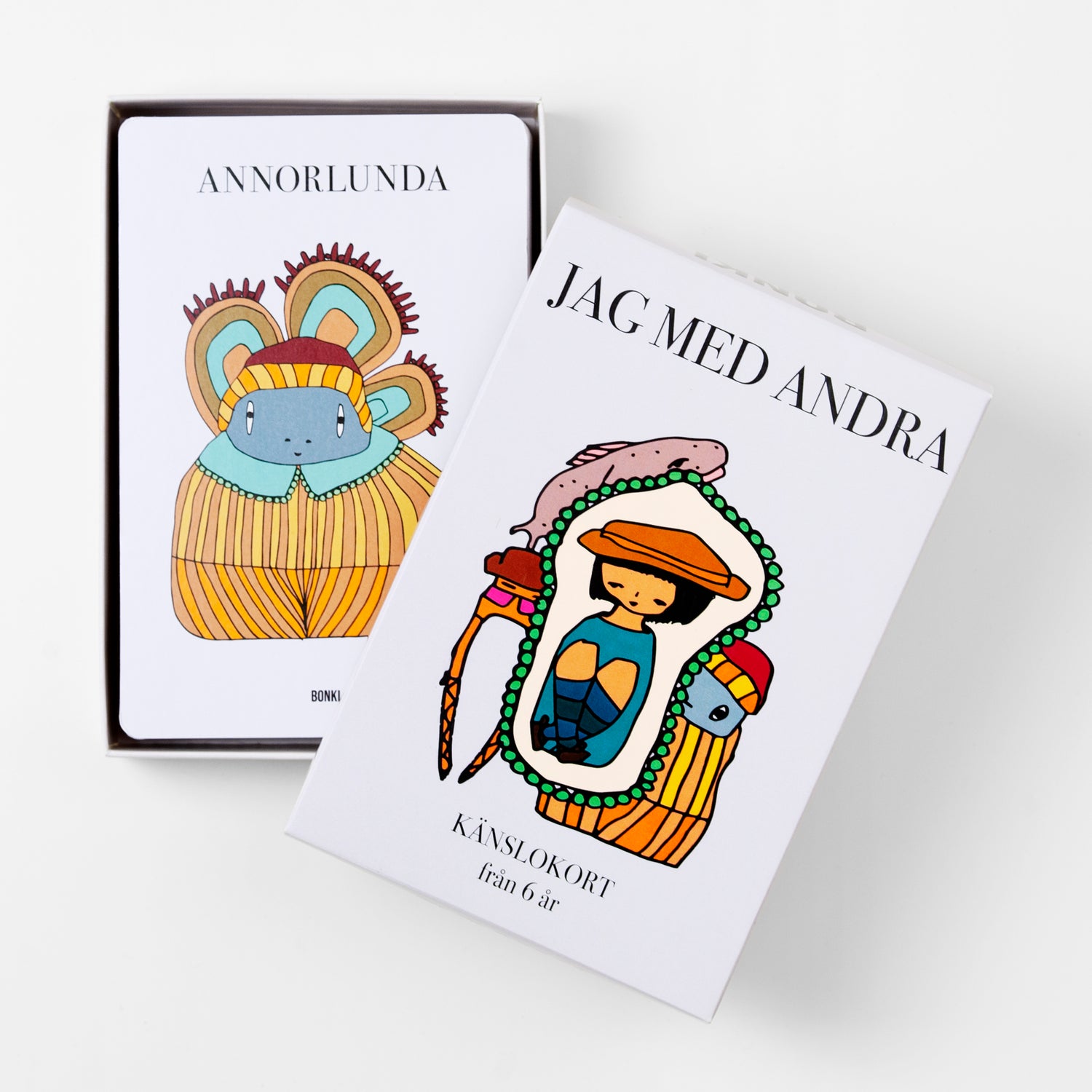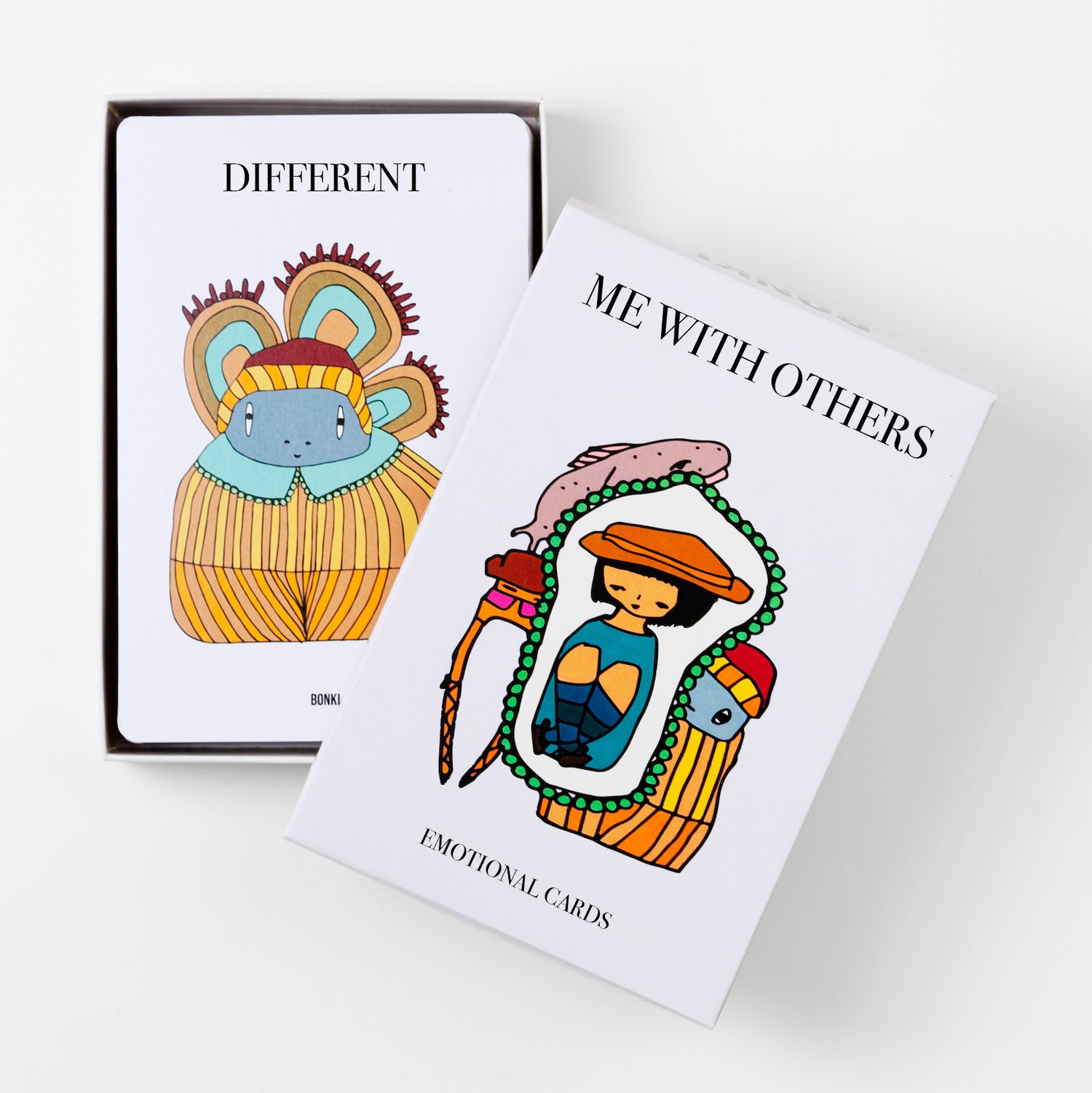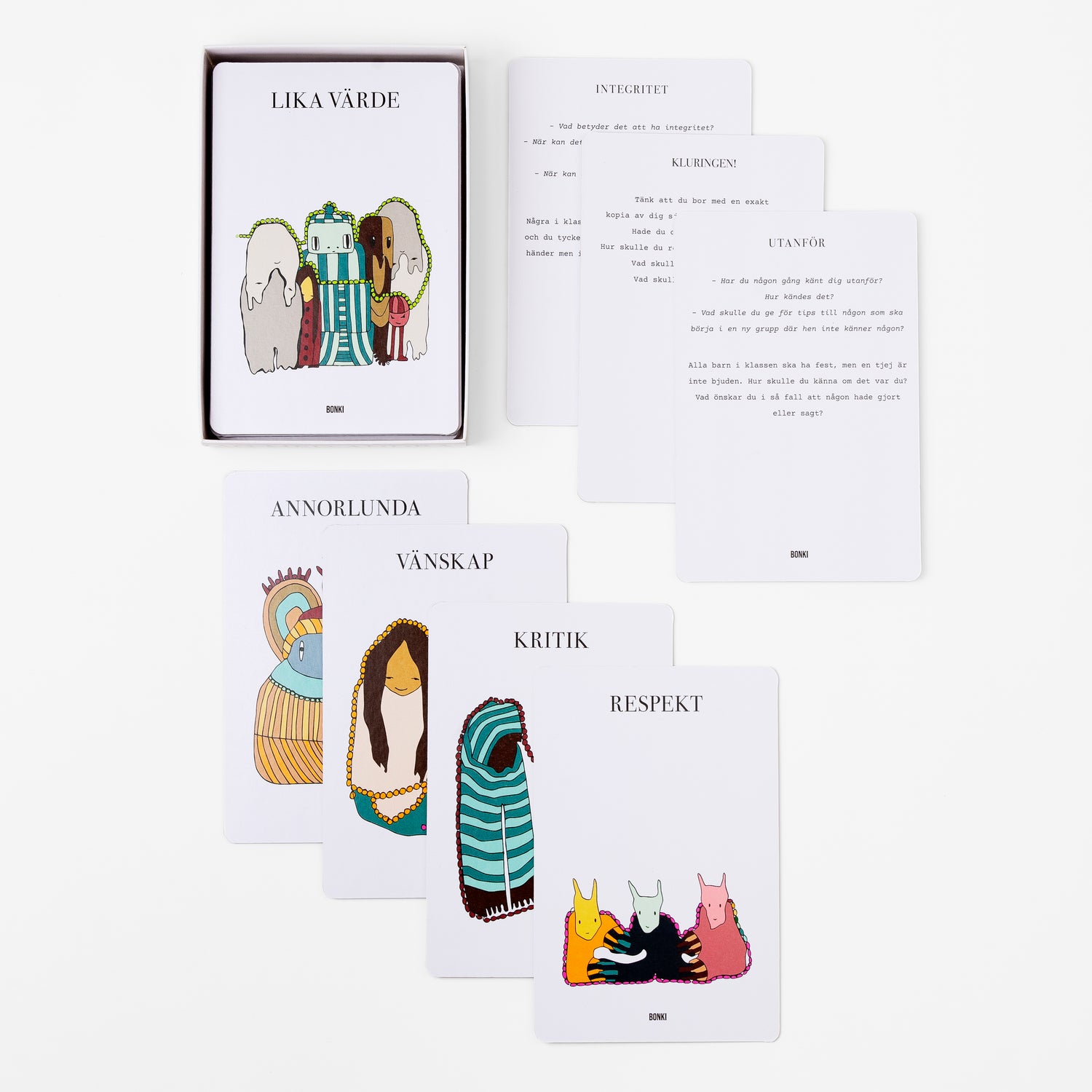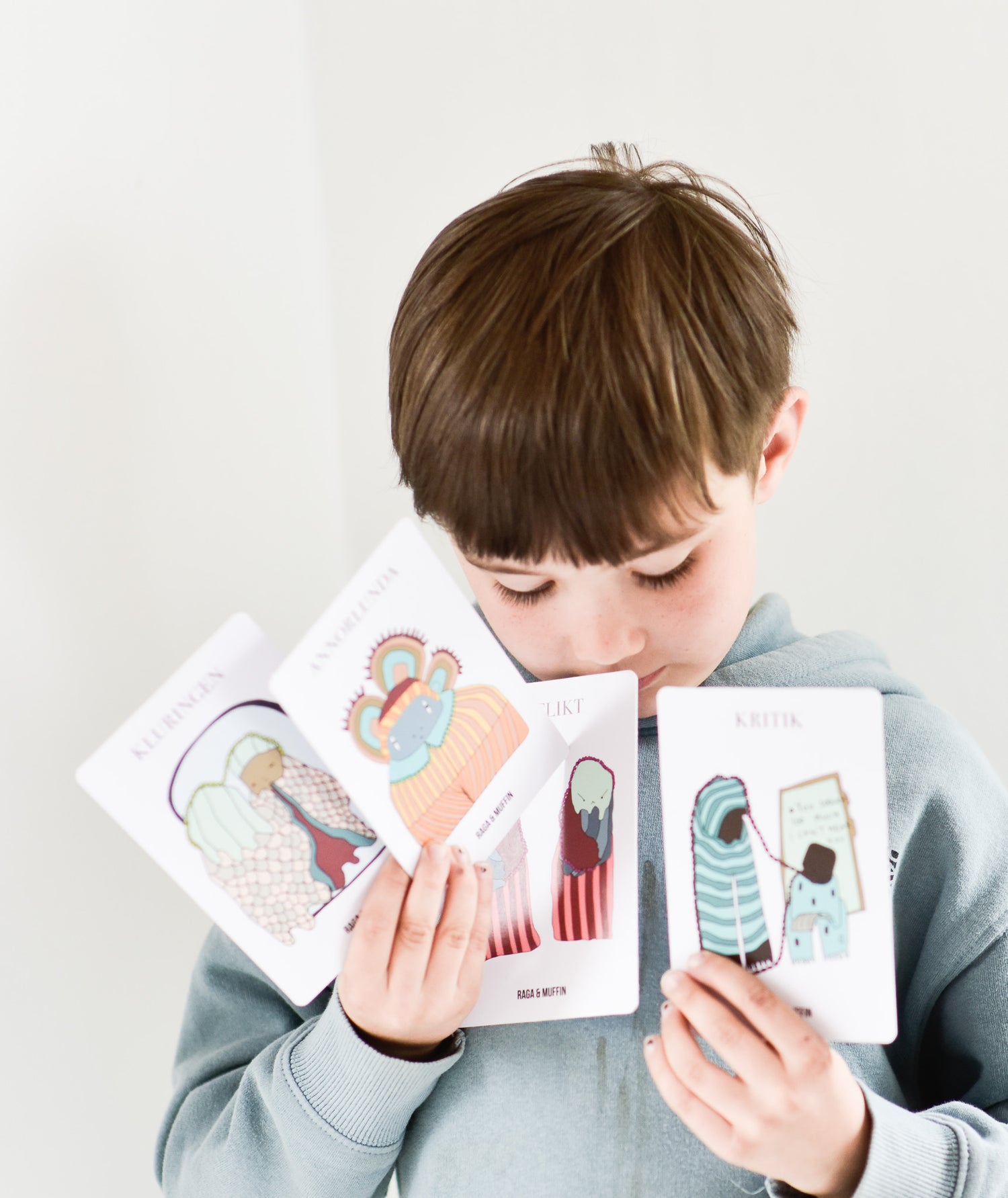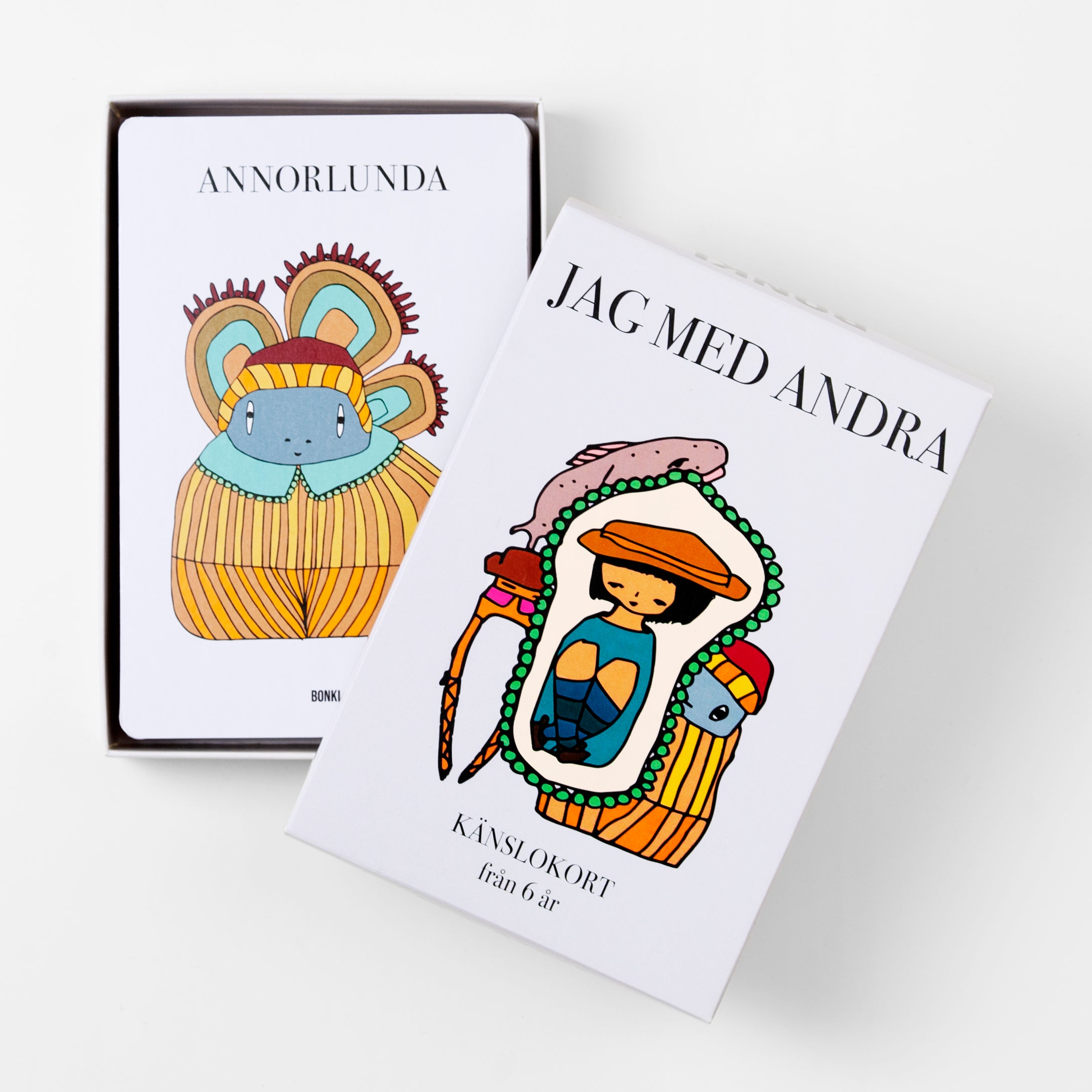
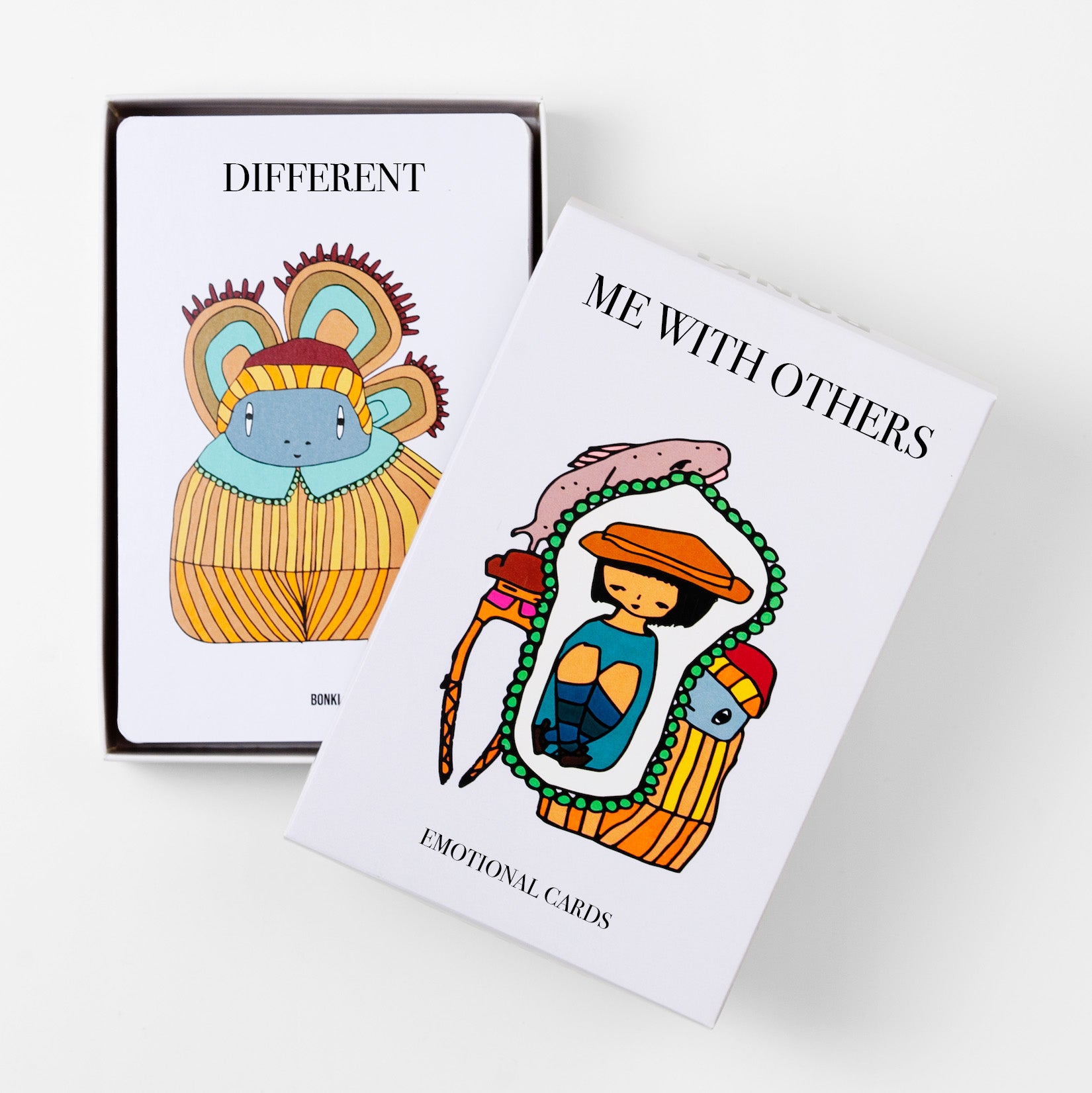
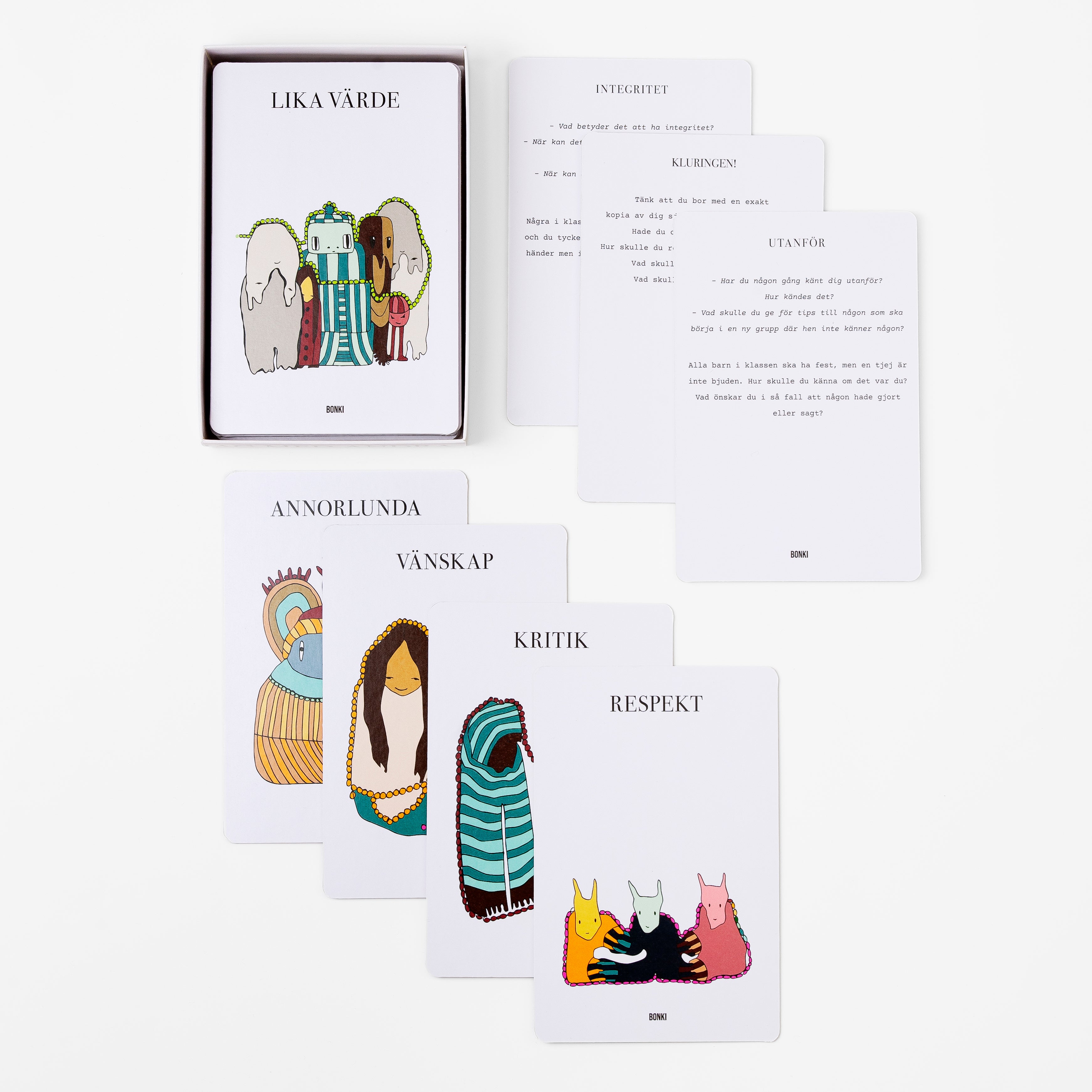
PRODUCT DESCRIPTION
- 21 high-quality cards
- Each card represents a unique situation.
- There are questions for every situation designed by licensed psychologist and licensed psychotherapist.
- The cards are illustrated to arouse curiosity & imagination
- Promotes self-esteem & empathy
- Large and easy to handle (A6)
- Can be used from 6 years and throughout life.
WHAT FEELINGS
- Differently
- Outside
- Good
- Contact
- Conflict
- Equal value
- Fail
- Brave
- Envy
- Shame
- Debt
- Stop
- Compete
- Appearance
- Friendship
- Integrity
- Truth
- Respect
- Acceptance
- Criticism
- The Clutter
DOES MY CHILD HAVE TO BE EXACTLY 6 YEARS OLD TO USE THE CARD?
- We have age guidelines on our cards, but not age limits. Children develop at different rates, which makes it difficult to determine what is right for your child. The guidelines are set according to common themes that come at different ages. However, the theme “me” found in card 1 is just as relevant as 3 years old, 8 years old and 36 years old. There is no upper age limit for emotional awareness.
AREN'T THESE THEMES A LITTLE ADVANCED FOR A CHILD OF THIS AGE?
- The emotions depicted may be both familiar and unfamiliar to a younger child. By reflecting on an emotion with an adult, the child learns to identify them when they arise. Even though an emotion may be unfamiliar to a young child, they are still there. However, all children are different, and it is you as an adult who decides what is appropriate for your child. If a card does not seem appropriate at the moment, it is simply put aside for the time being.
DO I HAVE TO HAVE COMPLETED ALL THE CARDS IN CARD 1 TO START WITH CARD 2?
- No, you don't have to start in any particular order. The cards are designed so that each step is independent of each other. We provide a suitable starting age as a guide. It is up to you as an adult to decide what is right for your child.
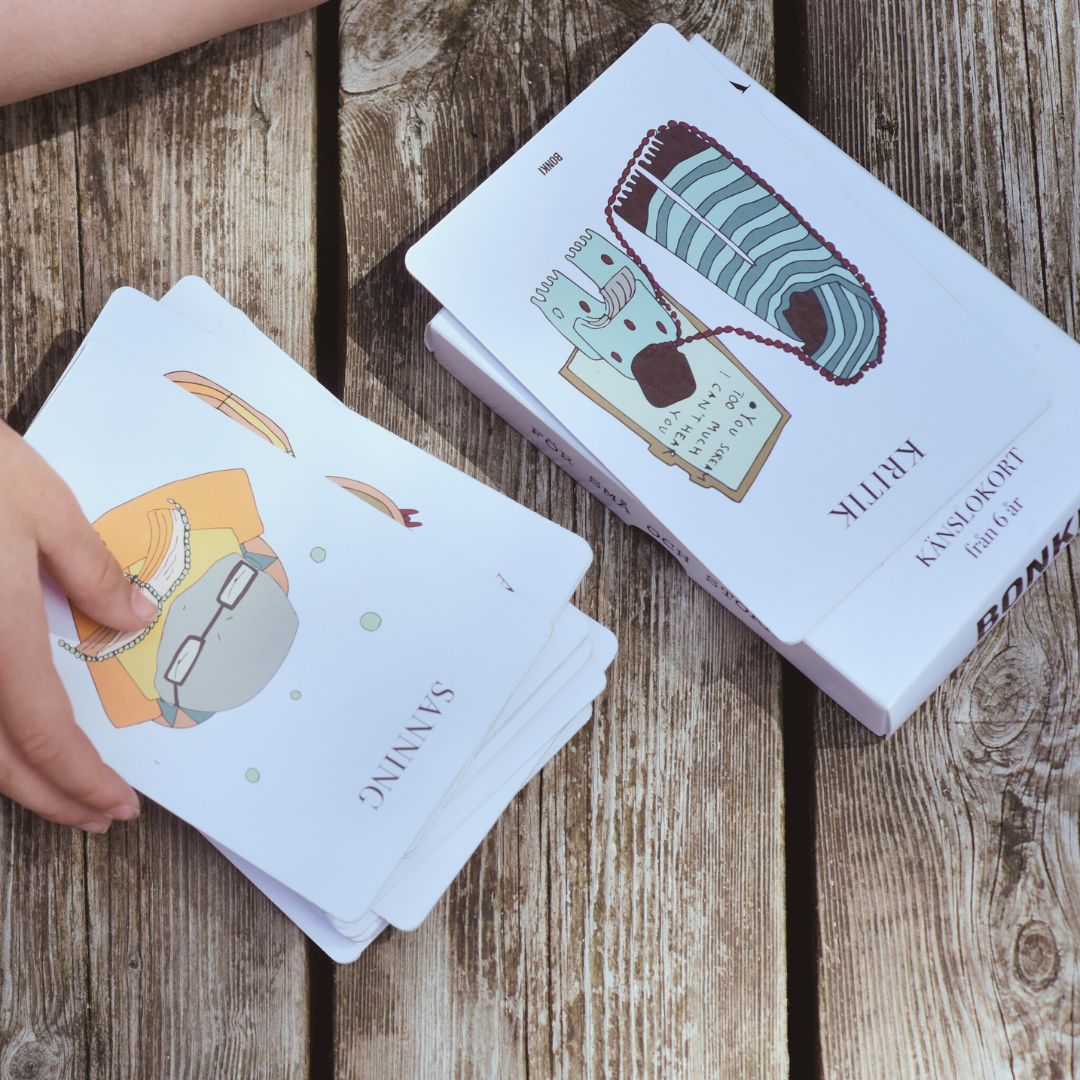
Emotional awareness makes it easier to deal with stress, conflicts, and other challenges that can affect one's mental health.
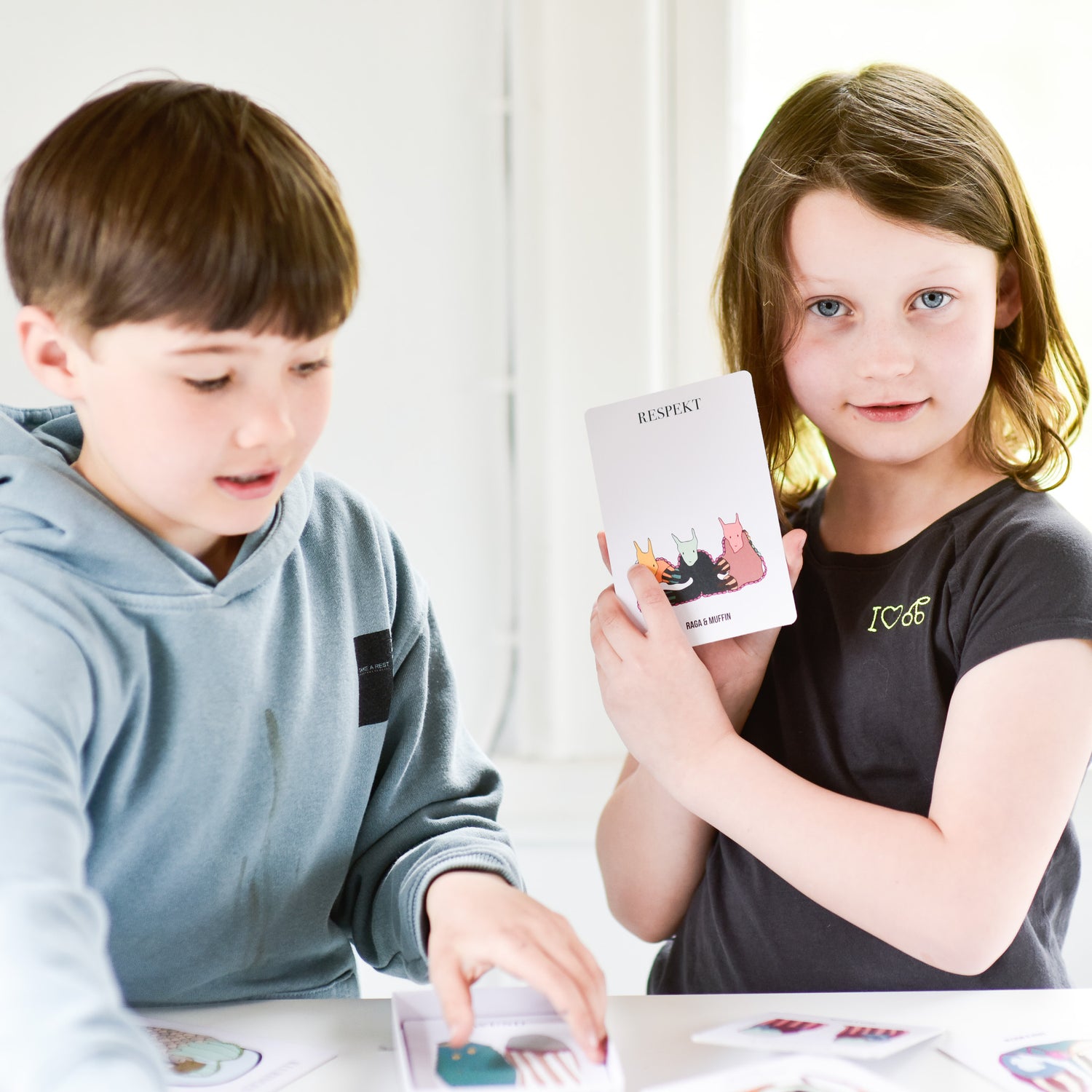
High empathy and effective communication help create safer relationships and reduce the risk of isolation and loneliness.
WHY?
Around the age of six, the child begins to reflect on the fact that other people also have feelings.
At this age, it can be common to spend time resolving conflicts with children. Other themes may revolve around how to teach your child to self-regulate their own emotions.
Thoughts about other people's feelings and how they affect me can be difficult to sort through. Connection Cards 2 contains 21 cards that address these topics.
Together with licensed psychologist and psychotherapist Ida Welbourn, Connection Cards 2 for young and old who are thinking about emotions in a social context.
Many situations in preschool and school put great pressure on children to understand and be able to manage their own and others' emotions.
Little people are put in situations where they have to be able to reflect on other people's reactions and deal with their own complex emotions such as envy, guilt or being brave. It may not always be easy to tell an adult how you feel.
When you help your child reflect and find the words to describe complicated situations, you give your child the tools to deal with them on their own. By telling and listening yourself, you set a good, empathetic example for your child.
Choose a card that feels relevant to you today, or you as an adult can suggest a card or situation. Listen to where your child is today and let the conversation take the path that feels natural.
Testimonials



@josefinapetrycer"We have never received an answer to a direct question about how school has been at home. What I thought was just high integrity turned out to be a difficulty finding the words. The cards have really helped us to talk in a de-dramatized way about things we didn't even know our son was thinking about. Many thanks from us!"
@vanessadime“It’s sooo exciting to hear what the boys have to say about the different feelings. I can also notice that it has become easier to bring up certain topics when we have become used to talking about them together. Something that previously felt a bit complicated has suddenly become so simple. Love the beautiful pictures!”
@mikaumela"We love the emotion cards! My children (8 and 10) often want us to sit with them in the evening or together on the couch when we have free time in the middle of the day. They provide many clever food for thought that strengthen emotional competence, and as a parent I get help with my imagination. Thank you for a concrete tool that helps us talk about things we might not have thought of otherwise. Both I and the children also appreciate that you write "adults" instead of "parents" or "mom and dad". Thank you for cozy and insightful moments with my little philosophers!"


